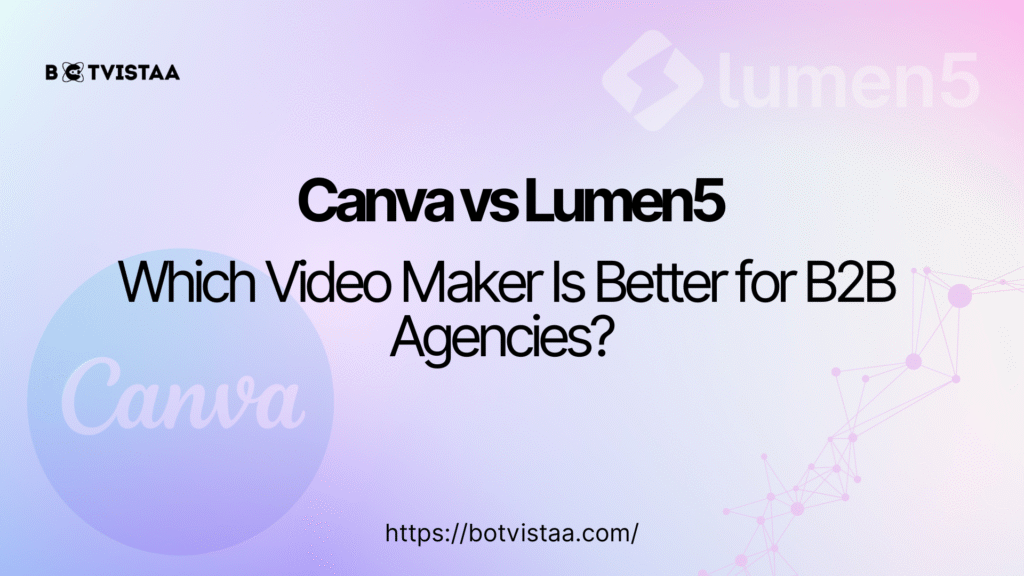Lorem ipsum dolor sit amet, consectetur adipiscing elit. Ut elit tellus, luctus nec ullamcorper mattis, pulvinar dapibus leo.
- Best AI Tools For Automation
Best AI Tools for E-Commerce Website Builders | Shopify, Wix, or Durable
Jump To
When you purchase through links on our site, we may earn an affiliate commission. Here’s how it works.
I’ve built websites for years—using everything from drag-and-drop builders to hand-coded solutions. But everything changed once I started using AI tools for e-commerce website builders like Shopify Sidekick, Wix ADI, and Durable.
These tools don’t just save time—they help you launch clean, mobile-ready, SEO-friendly stores in minutes. In 2025, that kind of speed gives you a serious edge.
Here’s the thing: not all AI website builders are created equal.
Some are designed to scale massive e-commerce stores with thousands of products. Others are built for freelancers and local businesses that just need a fast, functional site.
In this guide, I compare three of the top AI tools for e-commerce website builders: Shopify, Wix, and Durable.
You’ll learn:
Which one builds the fastest
Which one ranks better on Google
Which one fits your budget and goals
And which tool gives you the most control
This guide is clear, concise, and based on real-world experience—no fluff, just insights that help you choose smarter.
What Are AI Website Builders?
AI website builders use artificial intelligence to create websites fast.
They handle design, layout, and content — with little to no input from you.
I just answer a few questions, and the builder generates the site for me.
That’s the main difference from traditional tools.
No coding. No templates. No dragging blocks for hours.
These tools learn from what I type — and build around it.
Core Features
- Automated design based on industry or niche
- Content generation (text, images, product descriptions)
- Product pages created with smart layout suggestions
- SEO tags and meta added automatically
- Mobile optimization handled out of the box
Popular AI Website Builders (in 2025)
- Shopify AI (Magic, Sidekick)
- Wix AI (ADI, Studio, Kleo)
- Durable AI (30-second builder with CRM & invoicing)
- Others: Framer AI, Unicorn Platform, Bookmark AiDA
These tools don’t just build websites — they think ahead.
They give me a head start by writing the words, building the layout, and suggesting design changes.
Why Use AI for E-Commerce Website Building?
AI has changed how I build e-commerce stores.
It’s not just faster — it’s smarter.
Here’s what I’ve found:
1. Speed
AI builders like Durable and Wix ADI launch sites in minutes.
Shopify’s AI helps set up product catalogs fast.
2. Automation
No need to write every product description or SEO tag manually.
AI does it for me — and updates content instantly.
3. Personalization
AI suggests layouts, headlines, and colors based on my business type.
It feels like a smart design partner, not a tool.
4. No Code, No Problem
I don’t need tech skills.
Just type what I want — the builder handles the rest.
PRO TIP
Wix offers better control for SEO, but Durable wins in raw speed and simplicity. Choose based on your long-term goal—rankings or speed-to-launch.
Links
Price
Description
Brand
$17/month (Light Plan)
Product listings, checkout, digital goods. Free plan (with Wix branding)

$17/month (Light Plan)
Basic site only (no true store/cart).Free version (limited features)

Shopify AI – Built to Scale with You
Key AI Features
- AI Store Builder (generates full site structure)
- Shopify Magic (writes descriptions, blogs, emails)
- Sidekick (your chat-based AI assistant)
- AI image & banner generation
- Built-in SEO setup (meta, schema, alt tags)

Shopify isn’t just an e-commerce platform anymore.
It’s now powered by Shopify Magic and Sidekick, two strong AI tools designed to save you hours.
I tested Shopify’s AI Store Builder firsthand. It asked me a few simple questions, then built an entire store layout — fast.
What impressed me most? It didn’t stop at layout.
It added product pages, images, headlines, and default SEO tags.
Want help? Just ask Sidekick.
It writes product descriptions, answers questions, and teaches you how to grow your store — like a live assistant.
Sidekick understands context. It remembers your previous commands.
It also offers voice input, step-by-step guidance, and support for over 20 languages.
Cons
- Takes time to learn
- Higher monthly cost for premium features
Pros
- Scalable for big product stores
- Deep automation for marketing, blogs, and customer service
- Best-in-class SEO tools
- Supports upsells, funnels, and apps
Best For
I recommend Shopify AI if you’re serious about e-commerce. It works best for growing stores, product catalogs, and multi-channel selling.
If you plan to scale or run paid ads, Shopify’s AI gives you a big head start.
Wix AI – Where Creativity Meets Control
Key AI Features
- Wix ADI (instant site builder from prompts)
- Wix Studio AI for advanced design edits
- Kleo AI for text, video, and content generation
- Mobile optimization built-in
- AI logo and branding generator

I’ve always liked having control over how my website looks.
Wix AI gave me that, plus speed.
The Wix ADI (Artificial Design Intelligence) asked me a few questions.
In under five minutes, I had a modern, mobile-friendly store — with branding, layout, and demo products.
Wix also launched new tools like Studio AI and Kleo.
These help generate content, adjust layout, and even create video from text — using AI.
What stood out? The visual freedom.
I could drag, edit, and adjust anything. And still benefit from AI helping behind the scenes.
It felt like having a smart co-pilot.
Cons
- Can feel overwhelming for new users
- Site speed varies by template and setup
Pros
- Total visual control
- Excellent design templates
- Built-in SEO features
- Easy blog and e-commerce setup
Best For
I recommend Wix AI if you’re a freelancer, creative business, or brand-first entrepreneur.
You get flexibility and automation — without giving up design freedom.
Durable AI – Speed Over Everything
Key AI Features
- 30-second website builder
- AI-generated content and layout
- Built-in CRM and invoicing
- Marketing tools and auto blog writing
- 30-second website builder

I’ve never built a website faster than I did with Durable.
It asked me a few questions. Thirty seconds later, I had a full site.
Durable uses AI to create a complete business website — layout, text, images, and contact form — in one click.
I didn’t touch code. I didn’t choose a template. It just worked.
This tool is made for speed, not complexity.
It’s perfect if you want to launch quickly and don’t need deep customization.
Durable also includes AI-generated content, a CRM, invoicing, and simple analytics.
It’s like a full agency, packed into one dashboard.
Cons
- Limited design flexibility
- Not ideal for large online stores
Pros
- Fastest setup I’ve ever seen
- No learning curve
- Great for solo founders or small local shops
Best For
I recommend Durable if you’re a solo entrepreneur, freelancer, or service provider.
It’s perfect for MVPs, portfolios, or quick client demos.
Related Article: How AI help to improve UX design?
Comparison between AI tools for e-commerce website builders
Which One Builds the Fastest?
Winner: Durable AI
Durable is built for speed.
It creates a complete business website in under 30 seconds — layout, text, contact form, and branding.
You don’t need to tweak anything unless you want to.
For MVPs, quick demos, or local service businesses, this is the fastest builder I’ve used.
Shopify and Wix take longer but offer more control. Durable wins on speed, hands down.
Which One Ranks Better on Google?
Winner: Shopify AI
Shopify gives you full control over SEO essentials:
- Clean URLs
- Meta titles & descriptions
- Alt text
- Automatic schema
- Blog content powered by AI
It also integrates with SEO apps like Yoast and supports structured data — something Wix and Durable don’t do as well.
If search traffic matters, go with Shopify. It’s built to scale and rank.
Which Tool Gives You the Most Control?
Winner: Wix AI
Wix ADI and Studio let you tweak every element: layout, text, color, and animation.
You can also switch to full manual mode if needed.
With Wix, I get AI help — without giving up creative freedom.
Shopify offers control over products and SEO.
Durable is fast but more limited in layout and customization.
Which One Should You Choose?
After testing all three, here’s my honest advice:
Choose Shopify AI if:
You’re building a serious online store with plans to scale.
You’ll love the Sidekick assistant, built-in SEO, and deep e-commerce tools.
It’s worth the learning curve.
Choose Wix AI if:
You want creative control with help from AI.
It’s ideal for freelancers, artists, and brand-focused businesses.
You get speed plus stunning designs.
Choose Durable AI if:
You need a website right now with zero hassle.
Ideal for solo founders, service professionals, and MVPs.
It builds fast and gets out of your way.
ntirely around artificial intelligence. From the moment you land on the homepage, AI drives everything:
- AI Site Generator: Builds a full site in seconds — layout, text, images, and logo
- AI Writer: Creates homepage content, service descriptions, and blog posts
- AI CRM Tools: Automate follow-ups, quotes, and client interactions
- Auto Blog Generator: Drafts posts with headlines and SEO suggestions
- One-Click Edits: Use AI to rewrite any section instantly
There’s no setup or training needed. The AI works automatically.

If you’re looking for AI tools for e-commerce website builders that are fast, hands-off, and beginner-friendly, Durable is your go-to. It’s best for users who want everything done for them — quickly, simply, and with minimal effort.
Bonus: Built-In Marketing Features
All three tools now support marketing automation:
- Email campaigns
- Popups
- CRM integration
- AI-powered product suggestions
- Social media scheduling
You get more than a site. You get a mini-marketing machine — powered by AI.
These AI tools for e-commerce website builders aren’t just about speed. They’re about scaling smarter, with less work and better results.
Related Article: How to Automate Web Design and Save Hours per Project?
Final Verdict
If your main goal is e-commerce, here’s my clear pick:
Shopify’s AI tools (Magic + Sidekick) assist with writing product descriptions, optimizing store layout, setting prices, and improving SEO.
Here’s why I recommend it:
- It’s built from the ground up for online selling.
- Shopify’s AI (Magic + Sidekick) helps with product descriptions, store layout, pricing, and SEO.
- It supports multi-channel selling, subscriptions, and advanced analytics.
- The platform scales easily as your business grows.
While Wix AI and Durable are great for certain use cases:
- Wix AI is better for visual branding and small shops.
- Durable AI is ideal for service providers or fast MVPs, not full-scale e-commerce.
If you’re building a store with real products, real customers, and long-term plans —
Shopify AI is the tool I’d choose every time.
Subscribe To Our Newsletter
Aqsa Tehreem
- Best AI Tools For Automation
Our Recent
Blogs


Canva vs Lumen5: Which Video Maker Is Better for B2B Agencies?

YouTube SEO in 2025: How to Use vidIQ to Rank Higher and Grow Your Channel

GoHighLevel Funnel Automation for Client Retention: Post-Onboarding Guide



